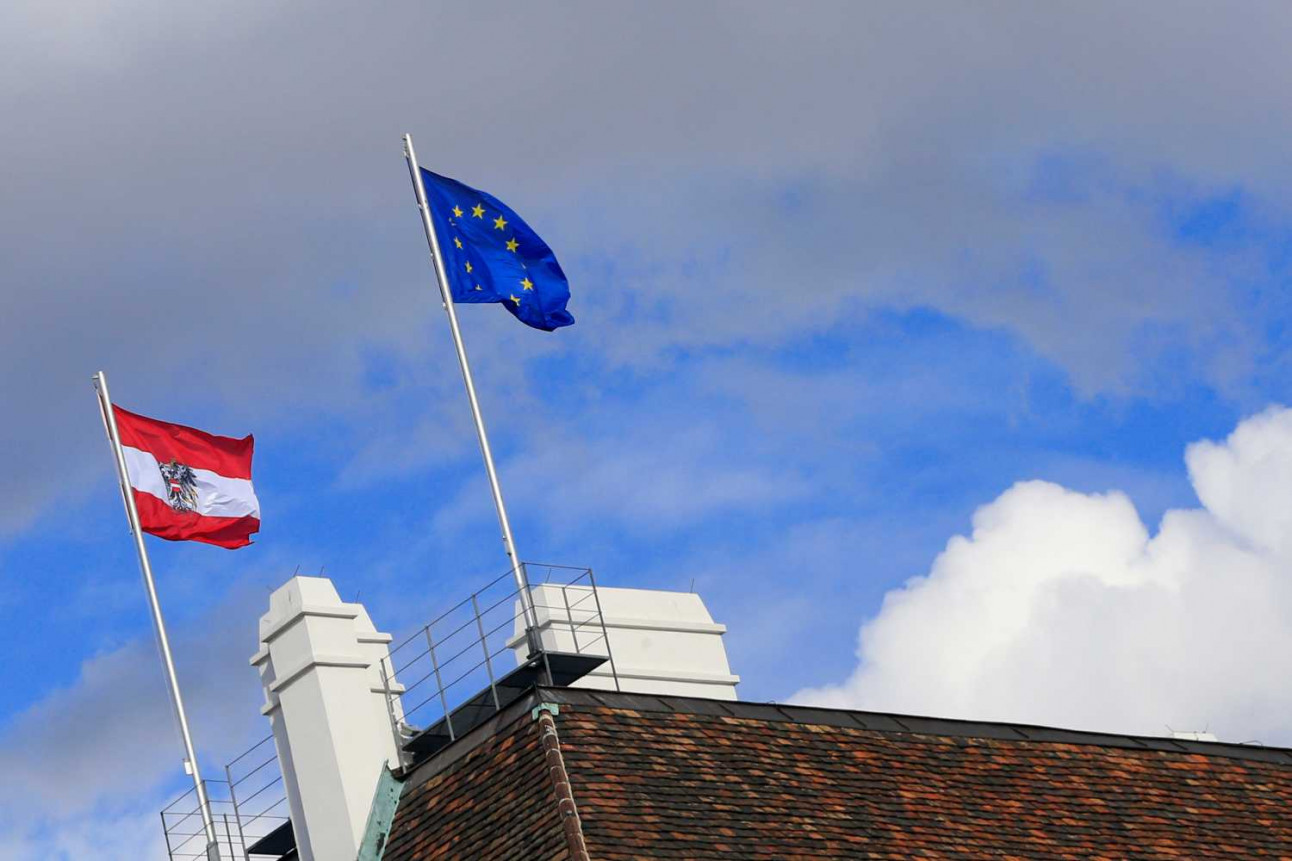UPDATED: Who can enter Austria right now?

Who can enter Austria and under what circumstances? Here’s what you need to know.
Please note: The rules for entering Austria have changed. Please click the following link for an updated version of the entry requirements.
Austria has put in place a comprehensive entry protocol since the outbreak of the coronavirus pandemic.
Under the protocol, people who have been in certain countries over the past ten days may be restricted from entering Austria - or may need to complete either a negative coronavirus test and/or quarantine.
People will however be allowed to arrive in Austria under certain circumstances.
Different rules will come into effect from December 19th, when Austria puts in place a mandatory Christmas quarantine.
Click the following links for more information.
READ: Which countries are now on Austria's Christmas quarantine list?
UPDATE: What you need to know about Austria's Christmas quarantine rules
Who is not restricted from entering Austria?
Austrian citizens and residents will not be restricted from entry regardless of which countries they have been in for the past ten days.
They may however be asked to provide a negative Covid-19 test certificate or complete one in Austria and quarantine while waiting for the results.
People transiting through Austria without stopping will also not be restricted from entering.
What impact has Austria’s shutdown had on entry?
Austria’s shutdown rules only allow for ‘essential travel’, meaning tourist travel has been restricted.
This is the case both for Austrians seeking to travel domestically as well as people from abroad.
UPDATED: Everything you need to know about Austria's coronavirus shutdown
While this has not changed the country’s entry requirements, hotels are not able to host tourists during the month of November.
Hotels can remain open however to host business travellers as well as people who are travelling for compassionate reasons, i.e. to take care of a sick relative.
Who is allowed to enter Austria right now?
Despite the restriction on tourist travel, people from most European countries - as well as an assortment of non-European countries - are allowed to enter Austria.
Unless a European country is deemed to be ‘high risk’, people from those countries will be allowed to arrive without any restrictions.
Which European countries are high risk?
People from the following countries - or from certain parts of the following countries - are deemed high risk and will be partially restricted from entry.
This does not mean that they will not be allowed to enter, but that they need to produce a negative coronavirus test or be tested in Austria on arrival.
These are: Albania, Andorra, Bosnia-Herzegovina, Kosovo, Romania, Serbia, the Czech Republic, and certain regions in Belgium (Brussels and Wallonia), Bulgaria (Blagoevgrad, Burgas, Dobrich, Gabrovo, Jambol, Kardzhali, Montana, Plovdiv, Rasgrad, Shumen, Sliven, Smoljan, Sofia, Stara Zagora, Targovishte, Varna), Croatia (except Brod-Posavina, Istria, Koprivnica-Križevci, Osijek-Baranja, Šibenik-Knin, Varaždin, and Zadar), France (Île-de-France (Paris)), Spain (except the Canary Islands), Portugal (Lisbon and Norte) and the United Kingdom (North East, East Midlands, Yorkshire and the Humber).

Arrivals from EU countries face the fewest restrictions. Photo: ALEXANDER KLEIN / AFP
What about the UK?
The UK, despite its decision to leave the European Union, is still considered a European country for the purposes of Austria’s entry rules.
Arrivals from the UK will not be restricted from entering, other than those from North East, East Midlands, Yorkshire and the Humber. Anyone from these regions will need to show a negative Covid-19 test or be tested in Austria and quarantine until the results are available.
The UK has put in place restrictions on holidays from November 5th, however these are not the responsibility of the Austrian government and the rules will therefore not be enforced in Austria.
What about non-European countries?
As a default, countries outside Europe are considered to be high-risk - meaning that entry is not allowed.
There are however some countries where exceptions apply. These are Australia, Japan, Canada, South Korea, New Zealand and Uruguay.
Entry from these countries is permissible and a negative test does not need to be provided.
What is the quarantine process in Austria?
For anyone entering from a European region considered high risk - or Austrian residents, citizens or EU/EEA/UK/Swiss citizens entering from a non-European high risk area - a recent negative coronavirus test will need to be provided.
The test must be a PCR covid-19 test, it must be less than 72 hours old and it must be negative.
What is the complete list?
Travellers from the following countries and regions will not be required to quarantine and/or produce a negative coronavirus test.
Australia, Belgium (except the areas of Brussels and Wallonia), Bulgaria (except the regions Blagoevgrad, Burgas, Dobrich, Gabrovo, Jambol, Kardzhali, Montana, Plovdiv, Rasgrad, Shumen, Sliven, Smoljan, Sofia, Stara Zagora, Targovishte, Varna), Canada, Cyprus, Croatia (the regions Brod-Posavina, Istria, Koprivnica-Križevci, Osijek-Baranja, Šibenik-Knin, Varaždin, and Zadar only), Denmark, Estonia, Finland, France (except Île-de-France (Paris), Provence-Alpes-Cote d’Azur), Germany, Greece, Hungary, Iceland, Ireland, Italy, Japan, Latvia, Liechtenstein, Lithuania, Luxembourg, Malta, Monaco, Netherlands, New Zealand, Norway, Poland, Portugal (except Lisbon and Norte), San Marino, Slovakia, Slovenia, South Korea, the Canary Islands in Spain, Sweden, Switzerland, United Kingdom (except North East, East Midlands, Yorkshire and the Humber), Uruguay, Vatican City.
Editor's note: Please keep in mind that this article, as with all of our guides, are to provide assistance only. They are not intended to take the place of official legal advice.
The complete list of countries and risk areas updated by the Austrian government is available here.
Comments
See Also
Please note: The rules for entering Austria have changed. Please click the following link for an updated version of the entry requirements.
Austria has put in place a comprehensive entry protocol since the outbreak of the coronavirus pandemic.
Under the protocol, people who have been in certain countries over the past ten days may be restricted from entering Austria - or may need to complete either a negative coronavirus test and/or quarantine.
People will however be allowed to arrive in Austria under certain circumstances.
Different rules will come into effect from December 19th, when Austria puts in place a mandatory Christmas quarantine.
Click the following links for more information.
READ: Which countries are now on Austria's Christmas quarantine list?
UPDATE: What you need to know about Austria's Christmas quarantine rules
Who is not restricted from entering Austria?
Austrian citizens and residents will not be restricted from entry regardless of which countries they have been in for the past ten days.
They may however be asked to provide a negative Covid-19 test certificate or complete one in Austria and quarantine while waiting for the results.
People transiting through Austria without stopping will also not be restricted from entering.
What impact has Austria’s shutdown had on entry?
Austria’s shutdown rules only allow for ‘essential travel’, meaning tourist travel has been restricted.
This is the case both for Austrians seeking to travel domestically as well as people from abroad.
UPDATED: Everything you need to know about Austria's coronavirus shutdown
While this has not changed the country’s entry requirements, hotels are not able to host tourists during the month of November.
Hotels can remain open however to host business travellers as well as people who are travelling for compassionate reasons, i.e. to take care of a sick relative.
Who is allowed to enter Austria right now?
Despite the restriction on tourist travel, people from most European countries - as well as an assortment of non-European countries - are allowed to enter Austria.
Unless a European country is deemed to be ‘high risk’, people from those countries will be allowed to arrive without any restrictions.
Which European countries are high risk?
People from the following countries - or from certain parts of the following countries - are deemed high risk and will be partially restricted from entry.
This does not mean that they will not be allowed to enter, but that they need to produce a negative coronavirus test or be tested in Austria on arrival.
These are: Albania, Andorra, Bosnia-Herzegovina, Kosovo, Romania, Serbia, the Czech Republic, and certain regions in Belgium (Brussels and Wallonia), Bulgaria (Blagoevgrad, Burgas, Dobrich, Gabrovo, Jambol, Kardzhali, Montana, Plovdiv, Rasgrad, Shumen, Sliven, Smoljan, Sofia, Stara Zagora, Targovishte, Varna), Croatia (except Brod-Posavina, Istria, Koprivnica-Križevci, Osijek-Baranja, Šibenik-Knin, Varaždin, and Zadar), France (Île-de-France (Paris)), Spain (except the Canary Islands), Portugal (Lisbon and Norte) and the United Kingdom (North East, East Midlands, Yorkshire and the Humber).

Arrivals from EU countries face the fewest restrictions. Photo: ALEXANDER KLEIN / AFP
What about the UK?
The UK, despite its decision to leave the European Union, is still considered a European country for the purposes of Austria’s entry rules.
Arrivals from the UK will not be restricted from entering, other than those from North East, East Midlands, Yorkshire and the Humber. Anyone from these regions will need to show a negative Covid-19 test or be tested in Austria and quarantine until the results are available.
The UK has put in place restrictions on holidays from November 5th, however these are not the responsibility of the Austrian government and the rules will therefore not be enforced in Austria.
What about non-European countries?
As a default, countries outside Europe are considered to be high-risk - meaning that entry is not allowed.
There are however some countries where exceptions apply. These are Australia, Japan, Canada, South Korea, New Zealand and Uruguay.
Entry from these countries is permissible and a negative test does not need to be provided.
What is the quarantine process in Austria?
For anyone entering from a European region considered high risk - or Austrian residents, citizens or EU/EEA/UK/Swiss citizens entering from a non-European high risk area - a recent negative coronavirus test will need to be provided.
The test must be a PCR covid-19 test, it must be less than 72 hours old and it must be negative.
What is the complete list?
Travellers from the following countries and regions will not be required to quarantine and/or produce a negative coronavirus test.
Australia, Belgium (except the areas of Brussels and Wallonia), Bulgaria (except the regions Blagoevgrad, Burgas, Dobrich, Gabrovo, Jambol, Kardzhali, Montana, Plovdiv, Rasgrad, Shumen, Sliven, Smoljan, Sofia, Stara Zagora, Targovishte, Varna), Canada, Cyprus, Croatia (the regions Brod-Posavina, Istria, Koprivnica-Križevci, Osijek-Baranja, Šibenik-Knin, Varaždin, and Zadar only), Denmark, Estonia, Finland, France (except Île-de-France (Paris), Provence-Alpes-Cote d’Azur), Germany, Greece, Hungary, Iceland, Ireland, Italy, Japan, Latvia, Liechtenstein, Lithuania, Luxembourg, Malta, Monaco, Netherlands, New Zealand, Norway, Poland, Portugal (except Lisbon and Norte), San Marino, Slovakia, Slovenia, South Korea, the Canary Islands in Spain, Sweden, Switzerland, United Kingdom (except North East, East Midlands, Yorkshire and the Humber), Uruguay, Vatican City.
Editor's note: Please keep in mind that this article, as with all of our guides, are to provide assistance only. They are not intended to take the place of official legal advice.
The complete list of countries and risk areas updated by the Austrian government is available here.
Join the conversation in our comments section below. Share your own views and experience and if you have a question or suggestion for our journalists then email us at [email protected].
Please keep comments civil, constructive and on topic – and make sure to read our terms of use before getting involved.
Please log in here to leave a comment.